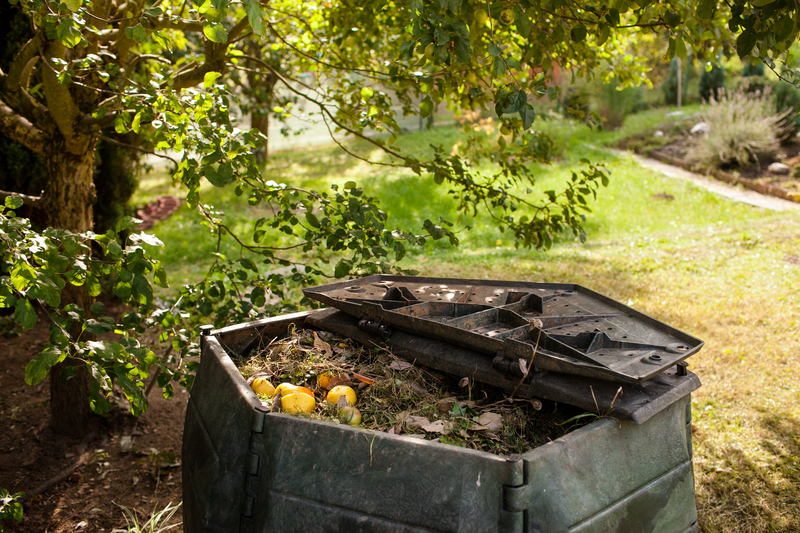Waste-Free London: Strategic Approaches
Posted on 16/11/2024
As global environmental concerns rise, cities around the world are adapting new strategies to minimize waste and promote sustainable living. London, being no exception, has implemented a variety of measures to work towards a waste-free future. This article delves into the strategic approaches adopted by London to manage waste efficiently, highlighting the pros and cons of these initiatives, offering tips for individuals, key takeaways, and a conclusion.
Initiatives and Programs
London's quest for a waste-free status spans numerous programs and initiatives aimed at reducing, reusing, and recycling waste. Some of the key initiatives include:
1. Circular Economy Strategies: London is focusing on transitioning from a linear economy to a circular one. This means more emphasis on designing products that can be reused, repaired, and recycled rather than discarded.
2. Waste Reduction Campaigns: Campaigns like 'Love Food, Hate Waste' aim to cut down on food waste by educating citizens on meal planning, storage, and utilizing leftovers.
3. Recycling Facilities: Upgrading recycling facilities and making the process more accessible has been a focal point. The London Waste and Recycling Board (LWRB) plays a pivotal role in this arena.
4. Plastic-Free City: Efforts to become a plastic-free city are underway, encouraging alternatives to single-use plastics and promoting reusable items.

Community Involvement and Education
Community participation is crucial for success in waste reduction. London has adopted several strategies to involve its residents:
1. Education in Schools: Introducing waste management curriculums in schools helps inculcate the habit of recycling and waste reduction early on.
2. Community Workshops: Workshops and events are organized to teach people how to reduce waste at home and in their businesses effectively.
3. Volunteer Programs: Several volunteer groups are actively involved in community clean-up drives and educational campaigns.
Technological Innovations
Leveraging technology to manage waste has seen impressive results in London:
1. Smart Bins: Implementation of smart bins that are solar-powered and notify waste management services when they are full, ensuring timely collection.
2. Waste Tracking Systems: Systems that monitor and analyze waste patterns help in strategizing more effective waste management plans.
3. Apps for Zero Waste: Mobile applications that provide tips, resources, and networks for zero-waste living are gaining popularity among Londoners.
Government Policies and Incentives
Government policies play a significant role in guiding a city towards its waste-free goals:
1. Incentives for Businesses: Grants and tax incentives for businesses that champion waste reduction and adopt sustainable practices.
2. Strict Regulations: Implementing stringent waste management regulations for industries to minimize their ecological footprint.
3. Public-Private Partnerships: Collaborating with private sectors for innovative waste management solutions and enhanced recycling processes.

Pros and Cons of London's Waste-Free Strategies
Pros:
1. Environmental Benefits: Reduced pollution and conservation of resources.
2. Economic Gains: Job creation in the recycling and waste management sectors.
3. Public Health Improvement: A cleaner city leads to better overall health.
Cons:
1. High Initial Costs: Setting up advanced recycling facilities and technologies can be expensive.
2. Behavioral Change Challenges: It's often difficult to change long-standing public habits regarding waste.
3. Regulatory Hurdles: Implementing new regulations can be a slow and challenging process.
Tips for a Waste-Free Lifestyle in London
1. Start Small: Begin by making small changes, such as carrying a reusable bag and bottle.
2. Educate Yourself: Stay informed about waste reduction and recycling techniques.
3. Join Community Efforts: Participate in local waste reduction initiatives.
4. Reduce, Reuse, Recycle: Follow the three R's diligently in everyday life.

Takeaways
1. Community and Education: Engage communities and fostering education on waste management are key.
2. Technological Integration: Leveraging technology enhances efficiency in waste management.
3. Policy Support: Effective government policies and incentives can accelerate progress.
Conclusion
London's strategic approach to becoming a waste-free city is driven by innovative techniques, community involvement, and robust policies. While the journey has its challenges, the potential benefits for the environment, economy, and public health are substantial. By adopting these strategic measures and encouraging individuals to integrate waste-free practices into their daily lives, London sets an inspiring example for cities worldwide striving for sustainability.
Latest Posts
Waste-Free London: Strategic Approaches
Richmond Property Sale Strategies
Best Practices for Investing in Real Estate in Richmond
Local Opinions: Living in Richmond
Making Memories in Picturesque Richmond: A Guide to this Quaint Suburb





